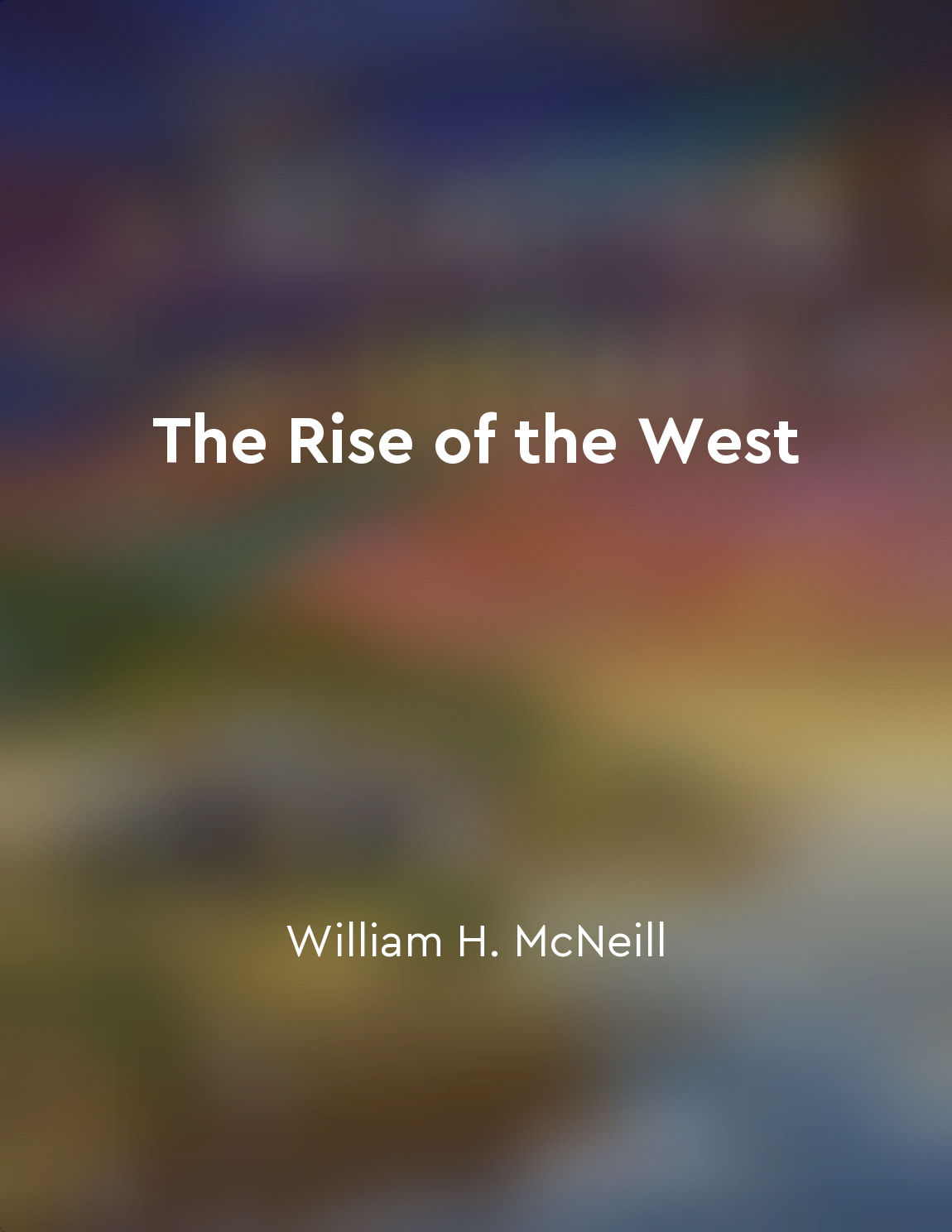Alexander the Great expanded Greek influence from "summary" of The Greeks by Paul Cartledge
Alexander the Great's conquests played a crucial role in expanding Greek influence beyond its traditional boundaries. By successfully defeating the Persian Empire and establishing an empire that stretched from Greece to Egypt and India, Alexander spread Greek culture, language, and ideas to the diverse regions under his control. This process of cultural diffusion, known as Hellenization, had a profound impact on the societies he encountered. Through the foundation of new cities, such as Alexandria in Egypt, Alexander encouraged the blending of Greek and local customs, fostering an atmosphere of cultural exchange and cooperation. These cities served as centers of learning and commerce, attracting scholars, artists, and merchants from different parts of the world. The spread of Greek language as a common tongue facilitated communication and facilitated the dissemination of knowledge across borders. Additionally, Alexander's campaigns introduced Greek art, architecture, and philosophy to the peoples of the East, influencing their artistic and intellectual development. The fusion of Greek and Eastern artistic styles gave rise to a new artistic tradition that reflected the cultural diversity of Alexander's empire. Philosophers like Aristotle, who served as Alexander's tutor, played a significant role in shaping the intellectual climate of the period, promoting ideas that would later influence Western thought. Furthermore, Alexander's conquests established a network of trade routes that connected the Mediterranean world with Asia, fostering economic growth and cultural exchange. The exchange of goods, ideas, and technologies between East and West enriched both regions and laid the foundation for future interactions. The integration of diverse cultures within Alexander's empire created a sense of cosmopolitanism that transcended traditional boundaries and fostered a spirit of openness and tolerance.- Alexander the Great's expansion of Greek influence through his conquests had far-reaching consequences for the development of world civilizations. By promoting cultural exchange, fostering intellectual creativity, and facilitating economic growth, Alexander's empire laid the groundwork for the interconnected world we inhabit today.
Similar Posts
The oracle at Delphi was a revered institution
The oracle at Delphi was more than just a religious sanctuary. It held a unique and revered position in the ancient Greek world...
Hellenistic culture emerged after Alexander's conquests
The conquests of Alexander the Great had a profound impact on the ancient world. The vast empire that Alexander created stretch...
Battle of Salamis, turning point in the war
The Battle of Salamis was a pivotal moment in the ongoing war between the Greeks and the Persians. After suffering defeats at t...
Greek mythology provided explanations for natural phenomena and human behavior
The Greeks, long before the dawn of science, sought to understand the world around them. They gazed up at the heavens and down ...

Cultural diffusion leads to new ideas and practices
Cultural diffusion, the spread of ideas and practices from one culture to another, has played a significant role in shaping the...
The lessons of the past can guide us in navigating the challenges of the present and future
Throughout the course of history, humanity has faced countless challenges and obstacles that have tested our resilience and abi...
Alexander the Great spread Greek culture throughout his empire
Alexander the Great, a man of unparalleled ambition and military genius, embarked on a conquest that extended from Greece to Eg...

